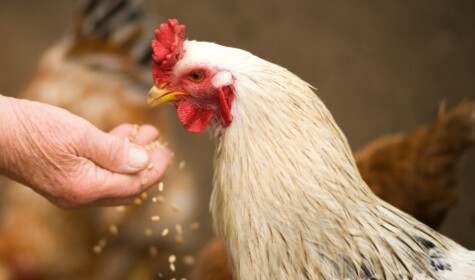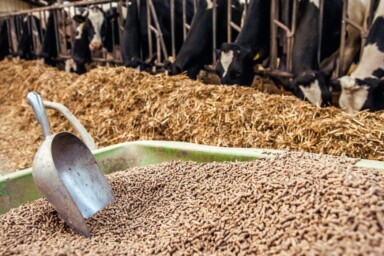With antibiotic resistance increasing globally, factory farmers have been under pressure to reduce their use of antibiotics. Headline figures suggest they’ve made significant progress, but an investigation by the Alliance to Save Our Antibiotics has found that although the use of the most medically important antibiotics has been reduced by chicken farmers, they have massively increased their use of other antibiotics classed as ‘feed additives’ rather than antibiotics to maintain their very intensive systems. These also pose threats to our health and to the environment.
Figures obtained by the Alliance to Save Our Antibiotics via a Freedom of Information request show that the poultry industry’s use of ionophores has increased by 33% in five years, from 212 tonnes in 2012 to a record 281 tonnes in 2017. During the same period, British Poultry Council farmers have cut their use of antibiotics used in human medicine from 82 to 14 tonnes.
Ionophores are not currently used in human medicine due to concerns about their toxicity, but several scientific studies have suggested they, or very closely related antibiotics, may have the potential to be developed in the future as effective treatments for the serious, and often lethal infection Clostridium difficile. Very few antibiotics are currently available to treat this disease.
According to the Norwegian government’s Scientific Committee for Food Safety, there is also evidence that the use of ionophores in poultry can increase resistance to some antibiotics used in human medicine, although further research is required to confirm the finding.
Ionophores are routinely added to the feed of most intensively farmed chickens to prevent the serious intestinal disease coccidiosis, and no veterinary prescription is required.
Cóilín Nunan of the Alliance to Save Our Antibiotics said: “Coccidiosis only occurs when chickens ingest chicken droppings, but that is unavoidable in intensive systems where tens of thousands of birds are kept permanently indoors in a single shed with a space allowance of less than an A4 sheet of paper per bird.”
The Federation of Veterinarians of Europe (FVE) is concerned about the overuse of ionophores in poultry production and has called for the drugs to be made prescription-only, as is the case for all other antibiotics used in European farming. The FVE has said that ionophores, and other medicines used to control coccidiosis, should ultimately be phased out, partly through making “necessary changes in management”.
Cóilín Nunan said: “We fully support the call from European veterinarians for these drugs to be made prescription-only to limit indiscriminate use but, as they are suggesting, much more fundamental change is required. It should no longer be permitted to keep chickens and other birds in conditions that are so cramped and unhygienic that this disease is unavoidable. All farm animals should be kept in conditions which minimise stress, disease and the use of toxic drugs.”
Because ionophores are toxic, there are also concerns about residues in food and the environmental impact of spreading chicken manure on land. Food residues are usually well below legal concentrations, but residues above these limits are regularly found in a small percentage of tested eggs and chickens. Most of the ionophores fed to poultry are excreted by the birds, so significant quantities can remain in manure spread on land, and scientific studies show this could have an impact on soil and aquatic organisms.
The Alliance welcomes the efforts the poultry industry has made in recent years to implement large cuts in its use of medically important antibiotics, and there is already evidence this is helping to cut rates of antibiotic resistance in poultry. Unfortunately, the industry has increased its use of ionophores to such an extent that there has been no overall fall in the use of antibiotics.
Even before the recent increases, ionophores were by far the most widely used antibiotics in poultry, and one possible explanation for their current record use is that the drugs also help control another serious intestinal disease called necrotic enteritis, which was previously partly controlled by higher use of medically important antibiotics.
A second possible explanation is that ionophores have a growth-promoting effect, as do several of the medically important antibiotics. Even though using antibiotics for growth promotion is no longer legal, the use of antibiotics for legal purposes can still promote growth. The reduction in use of some medically important antibiotics known to promote growth may be being compensated for by an increase in ionophore use.







